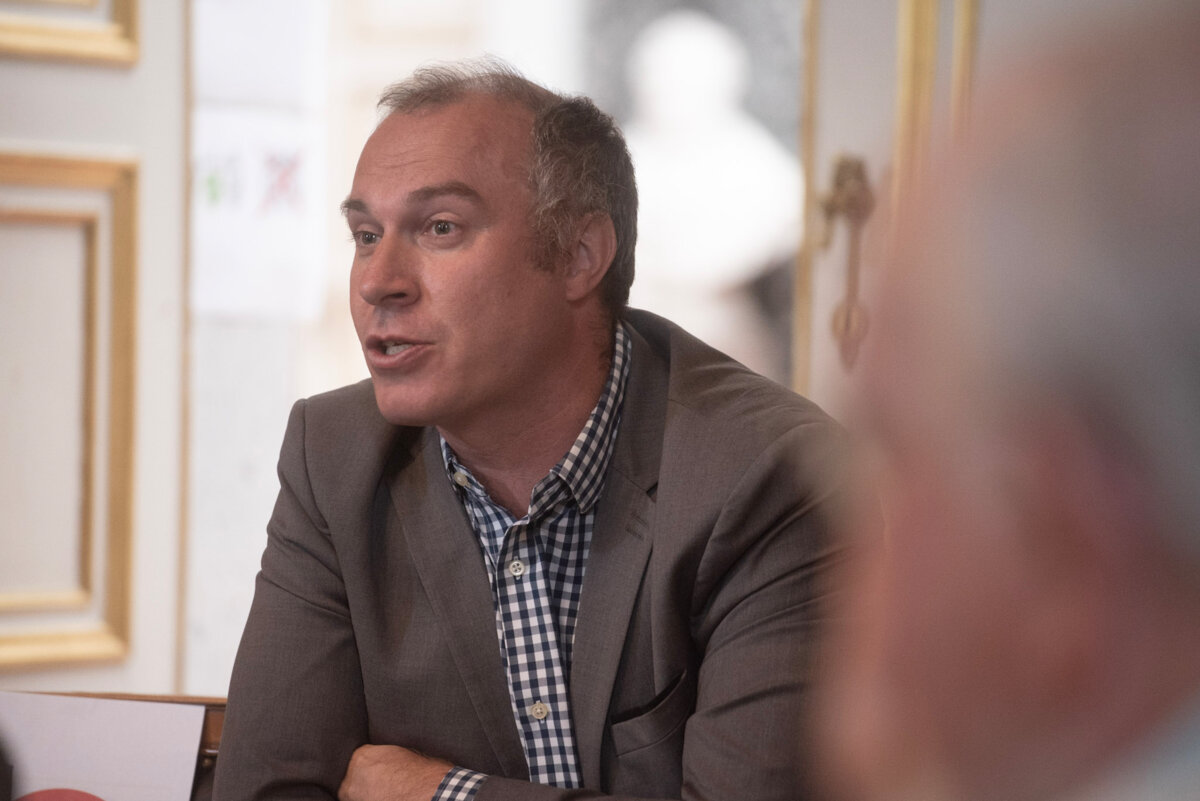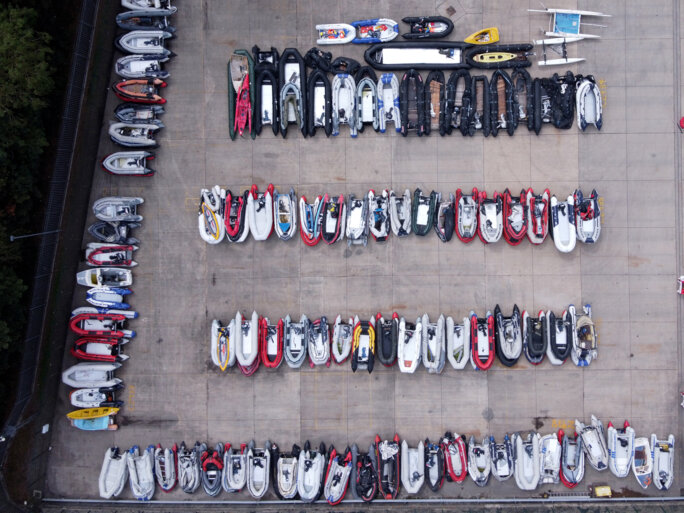Since the beginning of this year, more than 5,000 migrants have arrived in Britain via clandestine crossings of the Channel, including 1,004 for the period between August 4th-13th, according to analysis published by British news agency PA Media on August 21st. Those figures compare with a total of around 1,800 cross-Channel migrant arrivals on the English coast for the whole of 2019, and 400 in 2018.
The vast majority of the migrants attempt the crossings in overcrowded, small craft that are unsuited to the often treacherous waters which separate Britain from the European continent, and which is one of the busiest commercial maritime routes in the world.
Most have attempted the journey from beaches in northern France, and while there are regular rescue operations led by French and UK authorities, some have died in their desperate attempts to reach Britain.
Last week the body of a young Sudanese man was found washed up on a beach near Calais. According to another migrant with whom he had attempted the crossing, and who was found suffering from hyperthermia, the two came into difficulty amid high waves shortly after leaving France at night in their small dinghy, using shovels as oars.
While the British government has this month announced it was calling on the Royal Navy to reinforce maritime operations by the country’s national Border Force vessels, it has appointed, The Guardian reported, a former Royal Marine as “clandestine Channel threat commander” to make the route across the strait “unviable”. Meanwhile, London has accused Paris of not doing enough to prevent the crossings, an accusation strongly denied by the French authorities who say they have, on the contrary, increased coastal surveillance and patrol operations.
In an interview with Mediapart, published below, François Gemenne, a prominent Belgian political scientist specialised in migratory issues, warns that closing down migratory routes is “absurd” and “will lead to yet more tragedies”.

Enlargement : Illustration 1

Gemenne, who is head of Liège university’s Hugo Observatory, dedicated to research into the geopolitical effects of environmental changes, and a lecturer on environmental and migration policies at the Free University of Brussels and at the Sciences Po school of political sciences in Paris, argues that Britain and France are engaged in “a sordid competition of political cowardness”, heightened by post-Brexit reforms of UK immigration policy and an inertia by European governments.
-------------------------
Mediapart: What explains the surge in the numbers of migrants crossing the Channel these past few weeks?
François Gemenne: The summer is always a period when an increase in crossings is recorded, whether that be in the Channel or in the Mediterranean, because the weather there is more clement. It is an important element, because the crossings are made in very small and frail craft. Then there is the deadly upping of the tempo led since several weeks by British interior minister Priti Patel [Editor’s note, who has the official title of Home Secretary], multiplying excessive statements according to which she will close down this migratory route. Some Conservative Members of Parliament have even suggested annexing Calais!
All that reinforces the argument of the people smugglers according to which the crossing must absolutely be made now, because the route will soon be closed. It should never be forgotten that it is above all the smugglers, not the migrants, who decide on the timing and conditions for the crossings, and that it is a very profitable business for them. Priti Patel is complicit in a well-established marketing strategy, telling people that it will soon end in order that they rush into it.
Finally, there is still the complete blockage of the ‘Asylum and immigration’ project at a European level. The political reform of asylum and immigration policies was one of the priorities for the European Commission, then the coronavirus crisis eclipsed the issue. In Europe, there are thousands of young people without perspectives, who know that they will be sent back to Greece or Italy, according to the rules of the Dublin Regulation, if they request asylum elsewhere in Europe, and for who England represents the only way out. The inertia of European governments, which often borders on cowardice, should be singled out for criticism.

Enlargement : Illustration 2

Mediapart: In January you said that the rise in the numbers of crossings of the Channel already recorded then was “largely the effect of Brexit”. Do you think that’s still the case today?
F.G.: It is still the case. Priti Patel has announced a vast reform of British policies on migration which is due to come into effect on January 1st 2021. She wants to put in place a points-based immigration system, which will allow entry into the United Kingdom to those who have a certain level of salary [Editor’s note, which begins at a yearly £20,480, or around 22,684 euros], of skills, or diplomas. It is one of the key measures of Brexit, to “take back control”, as they say, of the country’s borders. Some migrants think that they will never be able to enter when the new system will be in place, and so try to enter before.
Mediapart: Has the Covid-19 health crisis had an impact of these crossings?
F.G.: Without any doubt. In the spring, we saw that the crossings were largely slowed down because of the lockdown. In the Mediterranean too. One can consider the hypothesis that there is a catching-up effect this summer. And one can suppose that the traffic through the Channel Tunnel has been considerably reduced, with controls further reinforced, which would also explain this upsurge in maritime crossings.
Mediapart: What are your thoughts about the controversy at the beginning of August over British media coverage of the issue when notably the BBC and Sky News organised live reports from the open sea, close to the migrants’ boats.
F.G.: These television crews filmed the migrants as if they were participants in a ‘reality-TV show’. The journalists – or hosts? – were on boats off Dover and approached the migrants’ dinghies to question them. There was an intolerable distancing between the television crews and the migrants in their tubs. That creates a dehumanization of migrants – we see them as fundamentally different to us, as if they were circus animals.
Mediapart: What do you think of the negotiations between the United Kingdom and France, both of which expect efforts to be made by the other?
F.G.: From the beginning we are in a sordid competition of political cowardice, in which each places the responsibility on the other. As long as the two countries will remain in that logic there will be no solution and the tragedies will continue. I must say that I don’t understand why there is not a renegotiation of the agreements of the Touquet Treaty which seem to me completely unbalanced. During the Brexit negotiations, any questioning of these agreements would have no doubt added fuel to the flames, but now? Why isn’t there more demand on the United Kingdom to accept minors who have family on its territory?
Mediapart: The British junior minister in charge of immigration compliance held talks with French officials in Paris earlier this month. Can the visit be described as a stepping up of pressure by London?
F.G.: I see it more as an operation for media coverage which seeks to install in British public opinion an imagination of a migrant crisis. The more this imagination takes root, the more immigration policy can be hardened. And the more this crisis will take hold. It is an endless vicious cycle.
Mediapart: On August 16th, the British defence ministry announced that the Royal Navy would assist the coast guard services in their missions to counter Channel crossings. Is this a solution to render the clandestine route “unviable” as has been said [by UK junior minister for immigration Chris Philp]?
F.G.: Unfortunately, this upping of the ante sets off a vicious circle. At every time a migratory route is closed down, it is another that is opened and reactivated, often much more dangerous. As long as Calais remains 35 kilometres from the English coast [Editor’s note, the shortest distance between France and the English coast is 33.5 kilometres], as long as the European policy towards asylum and migration will remain inexistent, and as long as England remains an attractive destination for migrants, there will be crossings from Calais to England.
Mediapart: Britain’s interior minister [Home Secretary] has claimed, as reported by The Guardian, that many migrants said they were crossing the Channel to the UK because they believed France was racist and that they were worried that they may be “tortured” there. Was that a finger pointed at the immigration policies of France?
F.G.: That is the pot calling the kettle black! For some months now, Priti Patel has instilled an anti-migrant climate in the United Kingdom, through outrageous statements and high-profile media interventions. It remains however that the situation for migrants in France is shameful. The conditions to accommodate them are below all expectations, and several institutions have a problem of structural racism. But the only aim of Priti Patel’s speech is that of pleasing her nationalist electoral supporters.
Mediapart: Is the current situation in the Channel in danger of becoming worse still?
F.G.: It was a delicate subject to deal with while the United Kingdom remained in the European Union. But now that the British have left, I can’t see what would prevent a renegotiation in order to reach a better equilibrium. The situation in the Channel is comparable to that in the Mediterranean. In the short-term, there must be secure and legal paths of access, and in the medium-term a true European policy. The idea of closing migratory routes is absurd and dangerous, because it will lead to yet more tragedies.
-------------------------
- The original French version of this interview can be found here.
English version by Graham Tearse


